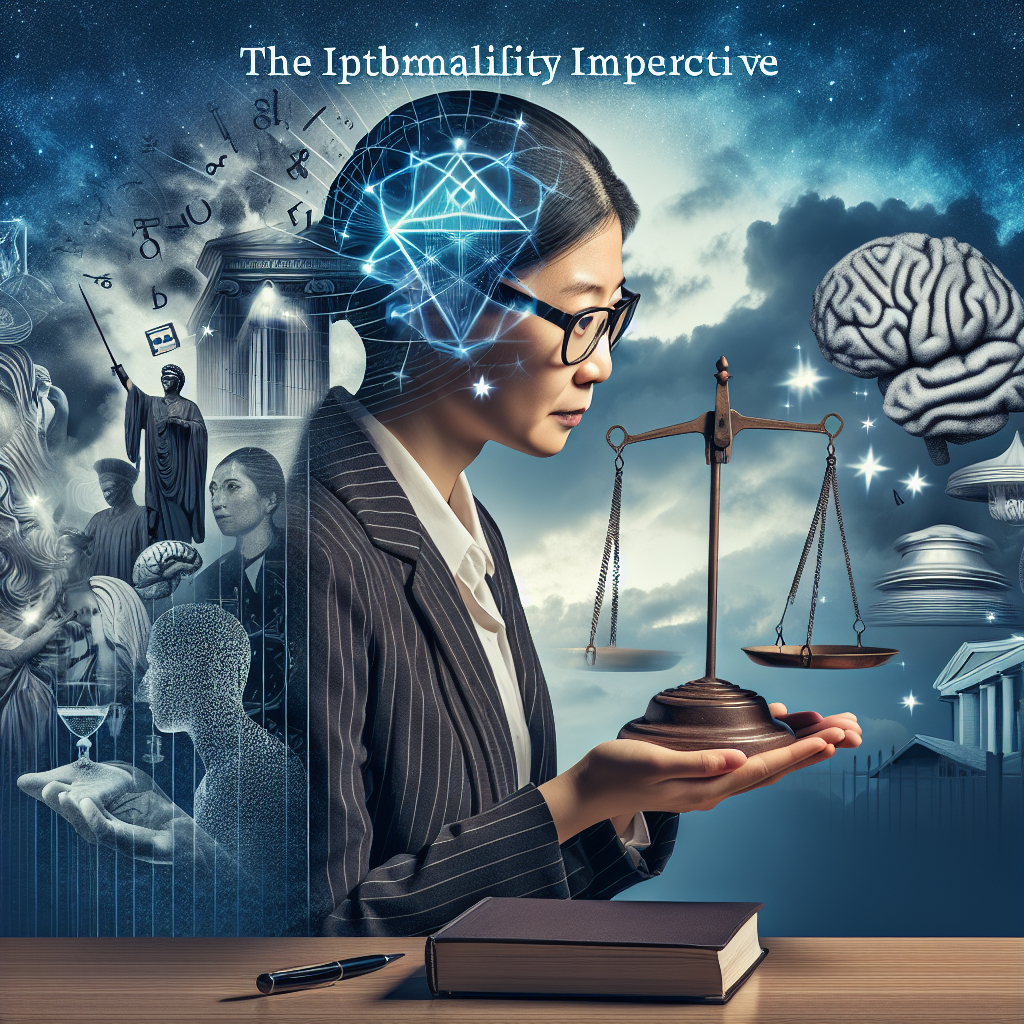
Introduction
Forensic psychology sits at the intersection of psychology, law, and ethics. It plays a pivotal role in the justice system, influencing critical decisions that can affect lives. But with this power comes responsibility. The impartiality imperative in forensic psychology is not just a professional expectation; it’s a cornerstone of ethical practice. Upholding ethics in this field is not merely about following legal guidelines; it’s about fostering trust, fairness, and clarity in a system that greatly impacts individuals and society as a whole. In a time where biases can easily seep into professional judgments, reinforcing this imperative is essential.
The Foundation of Forensic Psychology
Defining Forensic Psychology
Forensic psychology bridges the gap between psychology and the legal system. Practitioners evaluate individuals involved in the legal process—whether they’re witnesses, victims, or defendants—providing insights into their mental state, credibility, and behavior. This role demands a deep understanding of psychological principles and legal standards.
The Ethical Landscape
Ethics in forensic psychology encompass a range of dilemmas. Practitioners must navigate the complexities of confidentiality, informed consent, dual relationships, and the potential for bias. Upholding ethical standards is crucial in ensuring fair treatment and providing the legal system with accurate, reliable information.
The Impartiality Imperative Explained
What is Impartiality in Forensic Psychology?
Impartiality refers to the fairness and neutrality required in forensic assessments. Forensic psychologists must present unbiased evaluations, refraining from letting personal beliefs or societal influences cloud their judgment.
The Importance of Impartiality
- Trustworthiness: Impartiality builds trust between psychologists, the legal system, and the individuals involved.
- Accuracy: Unbiased evaluations lead to more accurate representations of an individual’s psychological state.
- Justice: Fair assessments help ensure that legal decisions are based on facts rather than subjective interpretations.
The Consequences of Impartiality Breaches
When impartiality is compromised, the repercussions can be severe. A biased psychological evaluation could mean the difference between freedom and incarceration for an individual. This concern stresses the significance of the impartiality imperative: upholding ethics in forensic psychology is essential to the integrity of the legal system.
Case Studies: Real-World Applications
Case Study 1: The Psychopath Test
In a landmark case, a psychologist’s biased assessment of a defendant labeled them as a "dangerous psychopath," leading to a lengthy prison sentence. An appeal revealed that the psychologist had misapplied diagnostic criteria due to personal biases. This raised questions about the reliability of psychological evaluations and reinforced the importance of neutral assessments in forensic psychology.
Analysis: This case exemplifies how a lack of impartiality can impact a person’s life irrevocably. Upholding the ethics of impartiality would have potentially led to a different outcome.
Case Study 2: The Insanity Plea
In another instance, a forensic psychologist’s evaluation regarding the insanity plea was called into question when evidence surfaced suggesting that the psychologist had formed a relationship with the prosecution. This relationship led to a skewed assessment favoring the prosecution’s narrative.
Analysis: This scenario highlights the dangers of dual relationships. The impartiality imperative is so significant that any perceived conflict of interest threatens the ethical foundation of forensic evaluations.
Case Study 3: Gender Bias in Assessments
A recent study revealed that female defendants were often judged more harshly than their male counterparts based on psychologically biased assessments. This discrepancy in treatment and evaluation reinforces systemic gender bias within legal evaluations.
Analysis: The importance of addressing gender bias directly ties back to the impartiality imperative in forensic psychology. Jurisprudence should be grounded in equitable assessments.
Strategies to Uphold the Impartiality Imperative
Training and Education
Continuous education on bias recognition and ethical considerations plays a crucial role in fostering impartiality. Forensic psychologists should be regularly trained on the principles of fair assessment.
Standards and Guidelines
Adhering to established ethical guidelines set by organizations such as the American Psychological Association (APA) provides a framework for maintaining impartiality. These standards help practitioners navigate complex scenarios and preserve fairness.
Peer Supervision and Consultation
Engaging in regular peer supervision cultivates an environment where psychologists can discuss their cases, share insights, and ensure mutual accountability toward upholding the impartiality imperative.
Technology in Assessments
Utilizing validated assessment tools and technology can help mitigate biases in evaluations. This approach leads to objective measures that enhance the accuracy and fairness of psychological assessments.
Chart: Factors Influencing Impartiality in Forensic Psychology
| Factor | Influence on Impartiality | Recommended Action |
|---|---|---|
| Personal Beliefs | Can create bias | Regular self-reflection |
| Dual Relationships | Conflict of interest | Maintain clear boundaries |
| Cultural Understandings | Potential for misunderstanding | Cultural competency training |
| Legal Pressures | Compromise objectivity | Adherence to ethical guidelines |
Conclusion
Upholding the impartiality imperative in forensic psychology is not just beneficial; it’s essential. The integrity of the legal system and faith in its processes rely heavily on unbiased, ethical practice. As practitioners, our commitment to impartial assessments fosters a more just society. By adhering to ethical guidelines, engaging in continuous training, and utilizing objective measures, we can ensure that our practices align with this imperative.
Motivational Takeaway
Let us as forensic psychologists be steadfast champions of impartiality. Upholding ethics isn’t just about compliance; it’s about making a difference in lives and ensuring justice prevails.
FAQs
1. Why is impartiality important in forensic psychology?
Impartiality is crucial in ensuring that evaluations are fair and accurate, which helps the legal system make informed decisions based on unbiased evidence.
2. What are some common challenges to maintaining impartiality?
Common challenges include personal biases, dual relationships, and external pressures from legal entities. Regular training and ethical guidelines can help mitigate these issues.
3. How can forensic psychologists address bias in their evaluations?
By engaging in self-reflection, pursuing continual education, and employing validated assessment tools, forensic psychologists can enhance the impartiality of their evaluations.
4. Are there specific ethical guidelines for forensic psychologists?
Yes, organizations such as the American Psychological Association provide established ethical guidelines that help forensic psychologists navigate potential biases and maintain impartiality.
5. How can I report a breach of ethical standards in forensic psychology?
If you believe a breach has occurred, you can report it to the relevant licensing board or professional organizations that oversee ethical practices in psychology.
By embracing the impartiality imperative, we stand not only as psychologists but also as guardians of justice. Always remember: our commitment to ethics shapes the very foundation of trust within the legal community.

















